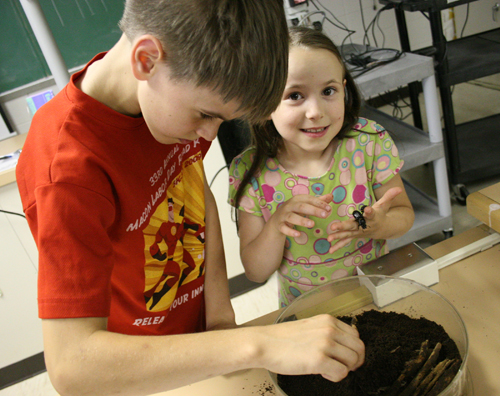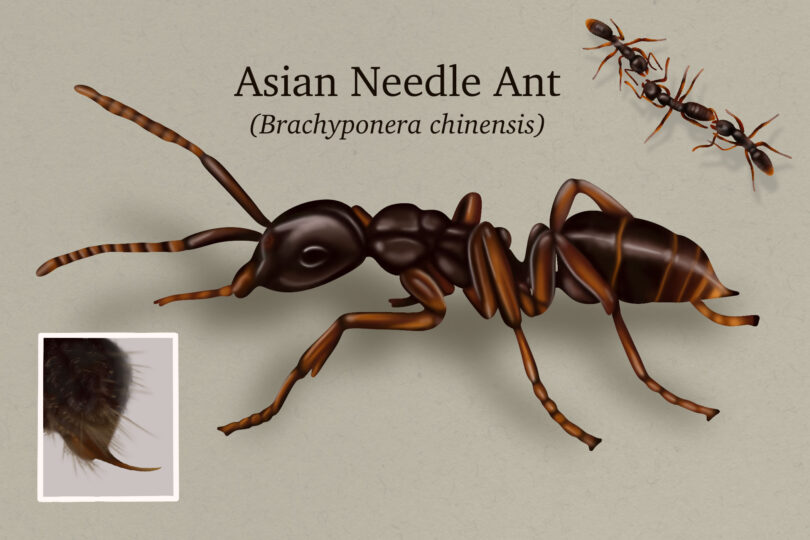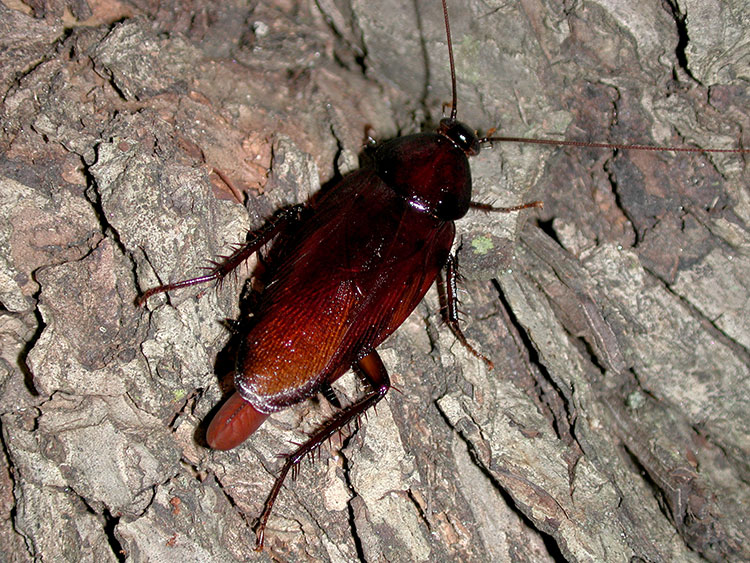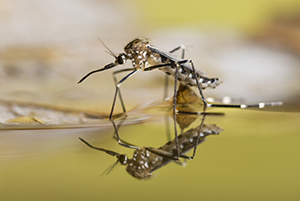University of Georgia entomologist Marianne Robinette gently places Rosie the tarantula in the student’s hands. Rosie has been traveling from middle school to elementary students for the past few hours, stopping for the occasional break in her plastic terrarium.
Rosie isn’t just helping students get over their fears of the hairy and scary creatures of the bug world. She’s a teaching tool, a vital part of Robinette’s hands-on learning program at the UGA College of Agricultural and Environmental Sciences.
Robinette and UGA students in her entomology service-learning classes will introduce insects to about 10,000 children this year. Rosie will go along to some of the visits.
“Being able to touch insects makes learning more tangible,” Robinette said. “They can look at it, hold it in their hands and count its legs. There’s a relationship with the brain and hands-on learning. It all comes together in the experiential learning realm.”
Getting their hands dirty
Children learn better when they’re actively involved in the lesson, said Diane Bales, a UGA Cooperative Extension child development specialist and professor with the College of Family and Consumer Sciences.
And while science – such as handling insects or building a miniature roller coaster to study velocity – is a perfect fit for involved learning, Bales said teachers and parents should be building hands-on projects into their lessons no matter what the subject.
“Basically, that’s the way children learn,” she said. “They’re very experiential. And having the opportunity to do things themselves is going to connect more to their brains.”
Back away from the worksheets
Bales teaches college students how to teach preschool and elementary children. She said sometimes she has a hard time convincing even her students that a worksheet is not necessarily the best way to teach. “It’s a hard sell,” she said.
Adults often have a hard time letting go of control of learning situations.
“When the teacher lets go, students have the opportunity to learn something that is as, or more, valuable than what we thought they would learn,” Bales said. “Having a teacher as a facilitator requires a deeper level of thinking than worksheets and fill-in-the-blank handouts.”
She said it’s also important that parents understand that the projects their children bring home aren’t just extra busywork. It’s a way students can learn to plan, meet a deadline, write multiple drafts and budget their time and energy.
Test score trouble
The battle between worksheets and hands-on learning partly stems from schools trying to meet the mandate of No Child Left Behind. Each school must make what is called adequate yearly progress, or they will be considered a failing school.
It’s the fear of failure that drives many schools and teachers to try to cram as much knowledge into their students as possible.
“A lot of teachers do less hands-on activities because they’re concerned about getting kids ready for standardized tests,” Bales said. “A lot of focus is conveyed on getting information to students the quickest way possible.”
Robinette considers test scores when she helps her students plan an insect zoo at a school. She creates a lesson that hits on certain Georgia Performance Standards, a structure which helps regulate what teachers teach and students learn.
The more students learn, the more they are aware of the world around them, she said. After that first safe introduction to insects, they’re not as afraid of them. And they also learn a safer way to use chemicals like pesticides.
Robinette’s ultimate goal is to encourage students to become entomologists. But until they are ready for college, she encourages them to just get their hands on science.
“How can we expect kids to sit, sit, sit and be, be, be?” she said. “The goal should be to create a better learning environment.”
For more information on the UGA insect zoo, visit www.ent.uga.edu/insectzoo, or contact Robinette at 706-542-1238 or entomolo@uga.edu.









